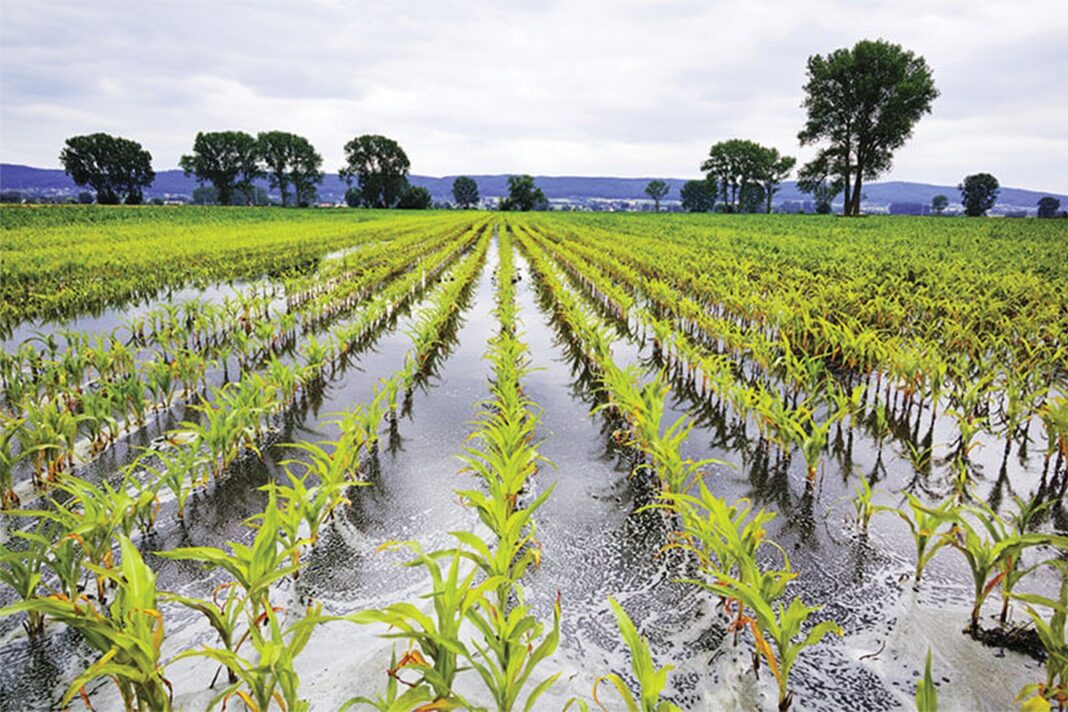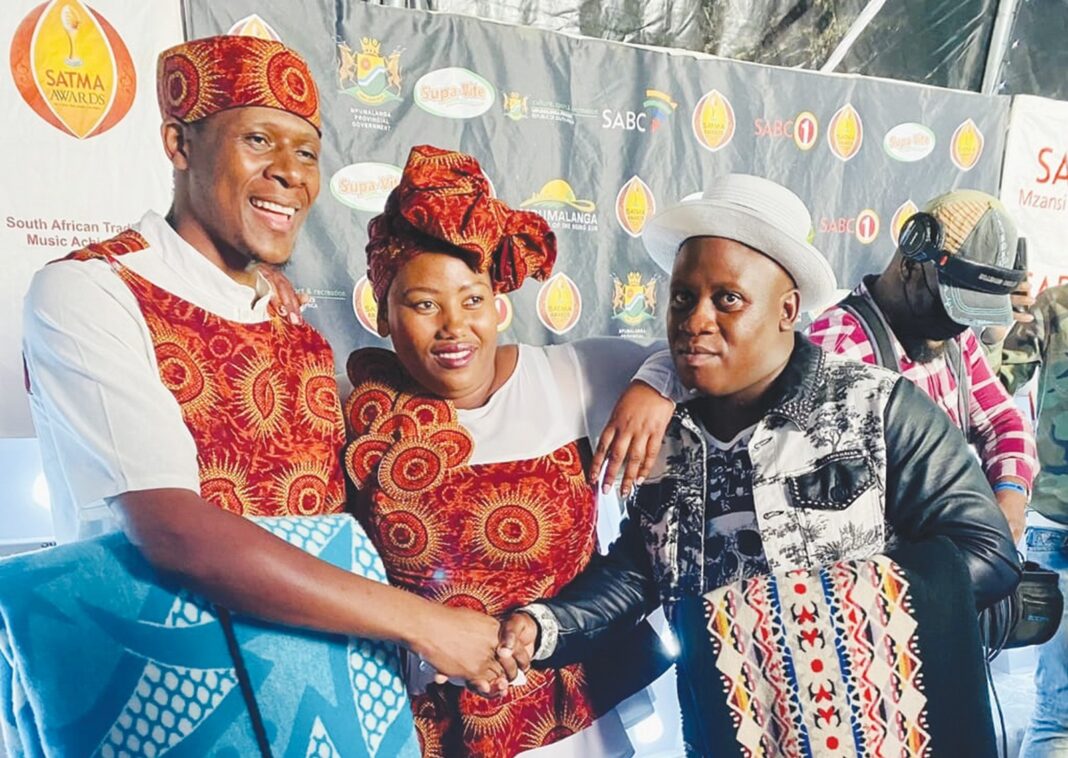By ‘Majirata Latela
Harvests from this year’s summer cropping may be in jeopardy due to heavy continuing rains threatening poor food production, experts have said.
Crop production prospects and food situation quarterly global report by Food and Agricultural Organisation(FAO) shows that in Lesotho the number of people projected to be food insecure between January and March 2022 is estimated at 312 000. That’s nearly half the figure estimated in 2021 for the same period.
FAO says the improved outlook rests mostly on the upturn in domestic cereal production in 2021 that bolstered households’ cereal supplies.
However, the slow economic recovery continues to impose constraints on households’ incomes, impinging on their economic capacity to access food.
The ministry of agriculture’s Mofihli Motšetšero from the department of crops says low crop production is expected from the current summer cropping, emphasizing that staple foods such as maize, sorghum and beans are some of the crops that are likely to be crippled by the current heavy rains.
He said some farmers who started planting when the summer season began, which is in October, may suffer poor harvests due to heavy downpours. He said heavy rainfall washes away soil nutrients, resulting in infertility.
“Too much rain with no sunlight prevents the veins of the crops to absorb nutrients from the soil, resulting in crops that do not grow or turn yellowish in colour. Crops also need sunlight to grow and when there is no sunlight it means those crops will not grow properly.
“Another issue is that since the rains came as early as October, by that time some people were still hoping the rains will stop and give them time to start putting seeds in the soil. The rain continued to fall resulting into waterlogged fields which made it hard for farmers to plant.
“With all these being the case, it already shows that we are going to fall short of food this summer season,” he warned.
He added that some of the solutions are for farmers to plant crops such as potatoes and beans as they can survive heavy rains, while also urging for growing of fodder crops which can also withstand heavy rains.
“Growing fodder is very important as farmers can exchange it for other foods. Some can even sell the fodder and potatoes so as to buy other kinds of food they need from farmers who will be able to get a good harvest.
“This is also the time when wheat is harvested but some people have not been able to do that due to the heavy rains which are flooding their fields. Delaying wheat harvest puts the crop at risk for increased disease, lodging, sprouting, and harvest loss.
“The solution for the crops that are currently trapped in water hindering them to grow is to use fertiliser called ‘LAN’ to replenish the soil.
“The ministry is already procuring the fertilizer from producers and it will soon be available to farmers at a subsidised price,” Motšetšero said.
According to National University of Lesotho (NUL) agri-business economist, Dr Montoeli Rantlo, also strongly warned that heavy rains are likely to result in poor food production.
“When there is low food production the result is that food prices especially staple food or cereal are going to increase. Lesotho as the largest importer of food is going to feel the pinch of price hikes because farmers in South Africa have also been complaining of the rain, meaning they may also experience low harvest.
“Farmers who may survive too much rain are those that grow crops under protected shelter because they are able to control the amount of water that goes into the crops,” he said.
The Lesotho National Farmers Union’s vice president, Khuboni Chakela, is gravely troubled by the situation. He said when summer cropping approached farmers struggled to get fertilizers. When they finally did, heavy rains disrupted planting.
“Rain has benefits and disadvantages, we were happy when the weather bureau showed that there was going to be enough rain this summer season only to find that it rained without giving us time to go to put seeds in the soil.
“It has rained so much that the fields are waterlogged and tractors are unable to plough the fields. Crop farmers who were able to go to the fields before it started raining are still not going to get good harvest because there has not been sufficient sunlight.
“Just like in times of drought when there is too much sunlight for the crops, too much rain still negatively affects the crops. This is the time when we need government to start declaring a state of emergency on this year’s summer cropping,” he said.
He appealed to Prime Minister Moeketsi Majoro’s not to wait any longer to declare that many families are facing food shortages especially those relying on subsistence farming.
Chakela also advised that farmers can however concentrate on planting leafy green vegetables and beans “as they are able to withstand the rain.” He hinted at a need for government to aid the negatively impacted agricultural farmers.
Weather projections from the Lesotho Meteorological Services predicted that the country is expected to receive normal to above normal rains for the period from October 2021 to March 2022.
This was revealed by the minister of energy and meteorology Mohapi Mohapinyane in September last year when giving a seasonal climate outlook for October 2021 to March 2022.
He indicated that ENSO, (a climate pattern in which coastal waters become warmer in the eastern tropical Pacific) is currently in its neutral phase with a possibility of a weak La Nina, (a climate pattern that describes the cooling of surface ocean waters along the tropical west coast of South America) is developing during the period October 2021 to January 2022.
Therefore, he said, the 2021/2022 rainfall season is likely to be influenced by weak LA Nina which is associated with enhanced precipitation over the country.
“Temperatures are predicted to be normal for the period October 2021 to March 2022 with a possibility of below normal. Occurrences of strong winds, lightning, severe thunderstorms, flash floods and hailstorms, are common weather phenomena in summer. However, climate change is expected to increase frequency and intensity of weather and climate extremes,” Mohapinyane said.
Meanwhile, the then minister of agriculture and food security, Likopo Mahase, encouraged farmers to take advantage of the expected rainfalls to prepare for summer cropping.








